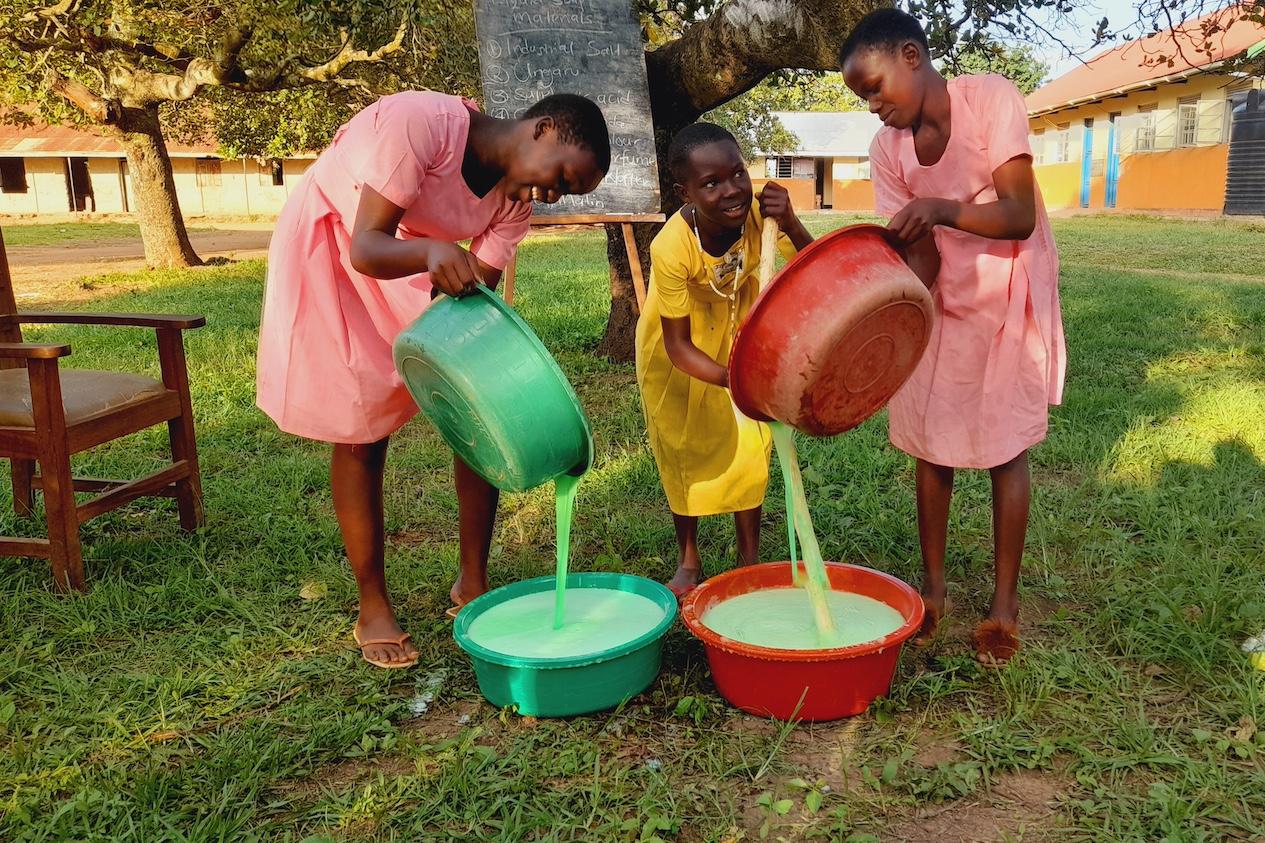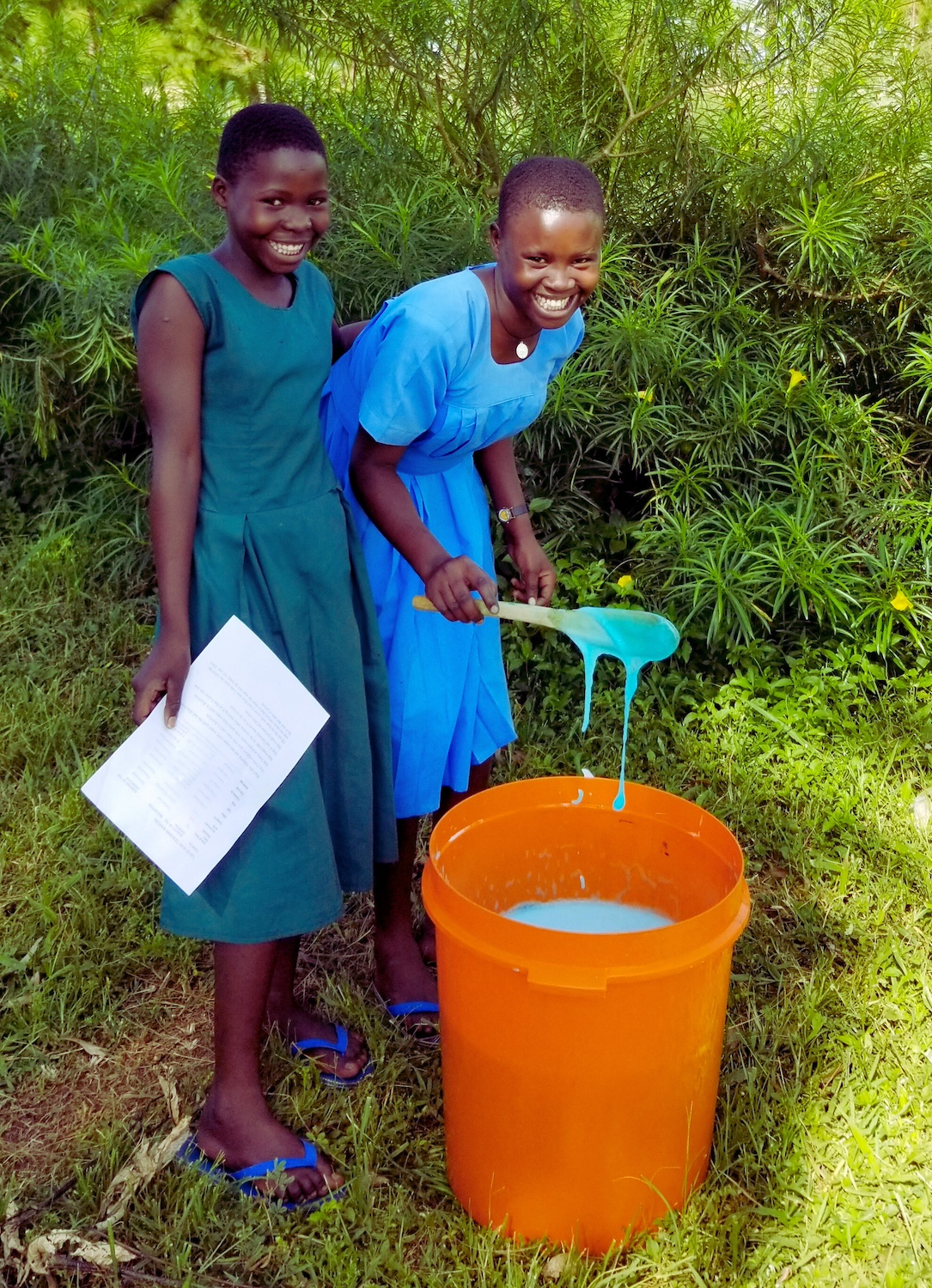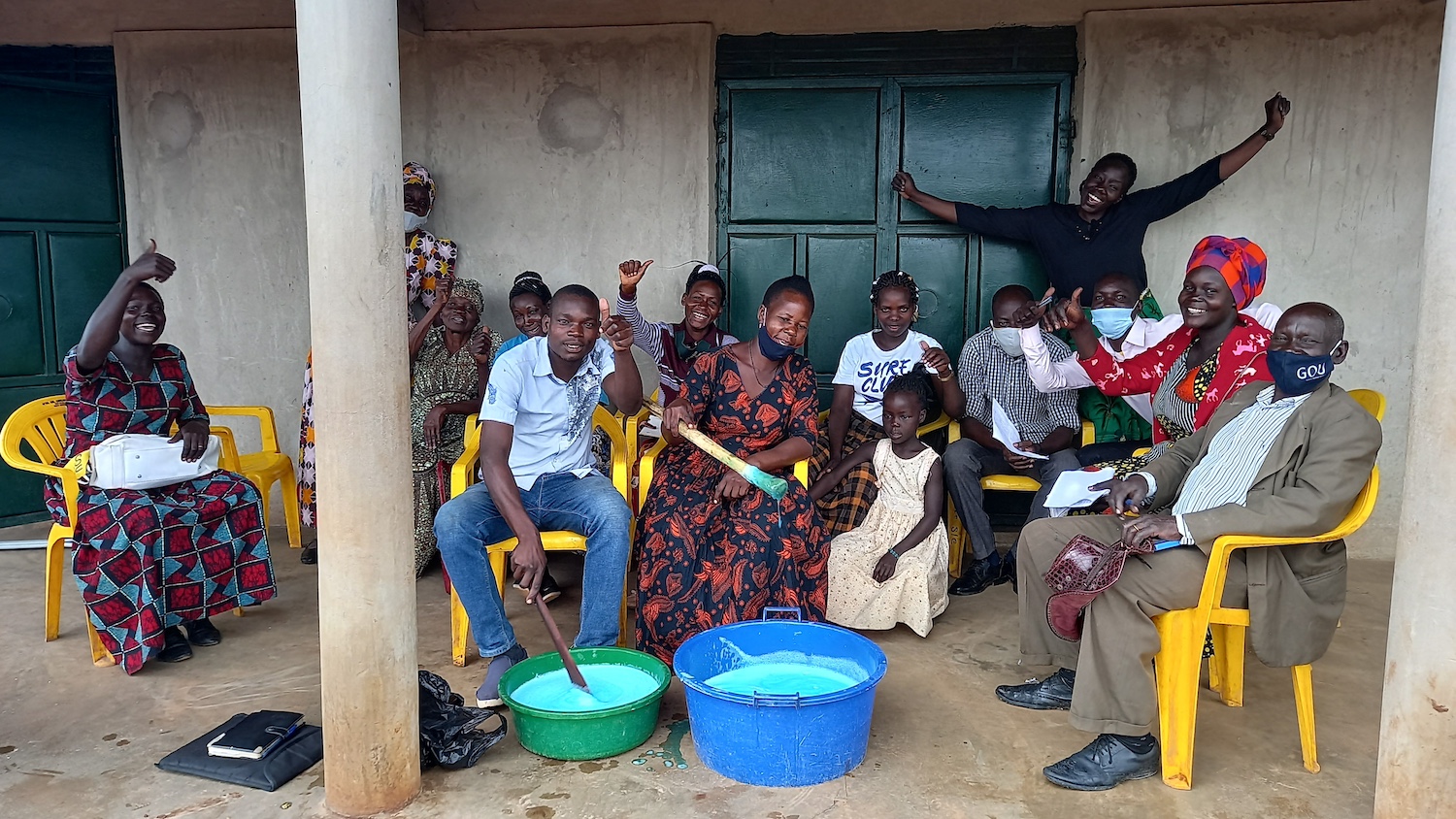
More than 6,000 people have learned soapmaking through programs supported by Surge for Water. (Image courtesy of Surge for Water.)
Worldwide access to safe water, sanitation, and hygiene progressed significantly over the past two decades. Still, 3.5 billion people weren’t able to use safe sanitation facilities as of 2022, according to the World Health Organization. Surge for Water is one of the nonprofit organizations working to drive that number down.
The key to doing so is community ownership, said Shilpa Alva, founder and executive director of the nonprofit. That’s why Surge doesn’t take the lead in any of the water and sanitation infrastructure or hygiene and soapmaking education projects it funds in Uganda, Haiti and Indonesia. “We have instead intentionally identified and partnered with grassroots, community-based organizations,” Alva told TriplePundit.
Surge works with community organizations that are micro-specific to small geographical and tribal areas, she said. Those organizations then partner with villages and parishes within their district to implement projects so ownership reaches a hyperlocal level. Surge currently serves 400,000 people through its network of community partners.
“If we’re drilling a well, building a toilet, delivering education at a school, we’re ensuring that the village owns that solution,” Alva said.
Women are also centered in the nonprofit’s ethos, as women are most affected by water and sanitation shortages, she said. Since women are less likely to have a voice in solving those problems, Surge makes a point to hire local women, work with women-led organizations, and encourage water service committees to include women in their membership.
“[Women are] the primary collectors of water, so when you’ve brought a well closer to their home, you've immediately centered them in that solution,” Alva said. “They now have time to go do value-added things like farming, selling their things in the market, studying, all those essential pieces of life and wellbeing can now have space.”

Creating opportunities for women now also trickles down to the next generation. When women are hired for technical and leadership roles, girls can see themselves following the same career paths. Alva said she is happy to report that when children in Surge’s educational programs are asked about what they want to do when they grow up, they often list becoming a water service program officer.
“To me, that's the true measure,” she said. “There's all the other data, but when the community and the children are actually looking at these women, who look just like them and are in these positions of authority and doing this amazing work, we're definitely making the proper shifts.”
The Surge for Water approach
The first step in Surge’s work is ensuring access to infrastructure, including wells, toilets and handwashing stations. While increased access benefits women due to menstrual needs, safety, and reduced time used to fetch water, the second step is where the work really starts to focus on them: soapmaking and menstrual health education.
“When we do the soapmaking programs in schools, we teach equally boys and girls,” Alva said. “However, when we go into community settings, into markets, into a village, and we’re training people, it's not even that we have been like, 'Only women can come.’ But predominantly, it's the women who show up because it's soap making. And they see the need because they're washing the clothes, they're washing the dishes, they're bathing the children.”
Surge is also starting to train women and girls to take on leadership roles in their communities and run businesses based on the skills they learn through its educational programming.
“[The enterprises] could be soapmaking, it could be pad making, could be the sale of household water filters, household toilets,” Alva said. “We're just starting to formulate that in a more strategic way, so that's our latest addition to our program.”

Soapbox helps make it happen
Surge also partners with the personal care brand Soapbox to bring the educational and entrepreneurial phases of its programming to life. Together with the local partners, they’ve made over 1 million bars of soap that were donated to people in the communities Surge works with. More than 11,000 students have received educational programming on hygiene and handwashing, and upwards of 6,000 people have learned soapmaking.
Surge and Soapbox also trialed a program dedicated to helping women set up soapmaking businesses in Haiti. A group of 50 single mothers received training and access to a facility where they could make and sell soap. Program participants were able to make more money than they would through farming or other traditional routes, Alva said.
In addition to the results of the program in Haiti, Alva said she’s seen evidence that women in Uganda and Haiti are starting their own soapmaking businesses and selling soap in markets and town centers. “We’ll see people selling soap, and we know that they went to our training,” she said.
Since Surge focuses on the community side of safe water, sanitation, and hygiene access, its model doesn’t currently cover the full gamut of needs. “What's missing here is the household level intervention,” Alva said. “For example, water purification filters at the household level or a household toilet or ensuring at the household level that everybody has soap.”
That’s where she said she hopes Surge can bridge the gap with market-based solutions, like its efforts to support soapmaking entrepreneurs. Just as women are beginning to use soapmaking enterprises to meet their own financial needs and their neighbors’ hygiene needs, they could work with community partners to meet demands for household toilets, water purification and the like.

Riya Anne Polcastro is an author, photographer and adventurer based out of Baja California Sur, México. She enjoys writing just about anything, from gritty fiction to business and environmental issues. She is especially interested in how sustainability can be harnessed to encourage economic and environmental equity between the Global South and North. One day she hopes to travel the world with nothing but a backpack and her trusty laptop.














